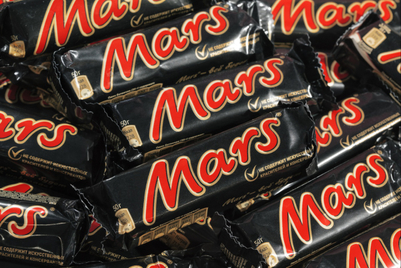
Gap Inc. (which owns Gap, Banana Republic and Old Navy), Adidas Group, Brooks Brothers, H&M and Marubeni are among the fashion icons being linked to Gistex Group in a report, Toxic Threads: Polluting Paradise, released by Greenpeace International.
Investigations have revealed the dumping of industrial wastewater containing a cocktail of toxic and hazardous chemicals, as well as caustic water, directly into the river, according to the organisation. It also noted that wastewater from one of two smaller outfalls was highly alkaline, which suggests it had not received even the most basic treatment prior to discharge.
Some 60 per cent of Gistex Group production is concentrated on the river watershed.
Antoine Calendrier, general manager at Waggener Edstrom China, noted that there is a risk of international negative brand exposure as this campaign is a new chapter of the Greenpeace 'Detox' campaign, which was rolled out two years ago and which has since gained great visibility and credibility.
"The report contained documented information on how the textile industry was polluting the Indonesian rivers, and pollution tests appear to credibly support the claim," he told Campaign Asia-Pacific. "In addition to this scientific-type of approach, the campaign is hugely supported online, with various activations on social channels, and the content is developed to engage people in a compelling way."
Even if the brand impact is real in terms of negative media coverage or share of voice, past experience shows that the actual impact on stores is likely to remain limited, he added. A temporary decrease in sales might happen, but brands are usually very resilient to those actions.
"Having met with Greenpeace a couple of times in similar situations, I can say that engaging dialogue quickly is a wise move," Calendrier said. "Brands are usually reluctant to do that, but there is a real upside in doing so––if each party is truly keen on finding a constructive solution to the situation."
The report said that unless companies like Gap, Adidas and Marubeni act with the necessary urgency, and work proactively with their supplier to solve the issue, this pollution will continue unabated, and “the duty of care that these companies act on will continue to be questioned”.
It noted that transparency of information between suppliers and brands––as well as full supplier engagement through hazardous substance-use inventories––is essential to help solve the problem of hazardous chemicals contamination.
Calendrier said action should be taken on the ground, but clearly endorsed by the management of the company, and that brands that were able to collaborate with NGOs in those situations usually grow stronger as their brand equity 'includes' the NGO input.
"For those that don’t, negative conversations are likely to continue disrupting the brand’s story for companies that don’t commit to this dialogue," he added.
Indonesia is one the top 10 largest clothing exporters, and a country where there is little information about the use of hazardous substances in production processes or their release into wastewater.


.jpg&h=334&w=500&q=100&v=20250320&c=1)


.jpg&h=334&w=500&q=100&v=20250320&c=1)
.jpg&h=334&w=500&q=100&v=20250320&c=1)


.png&h=334&w=500&q=100&v=20250320&c=1)


.jpg&h=268&w=401&q=100&v=20250320&c=1)


.jpg&h=268&w=401&q=100&v=20250320&c=1)

.png&h=268&w=401&q=100&v=20250320&c=1)

